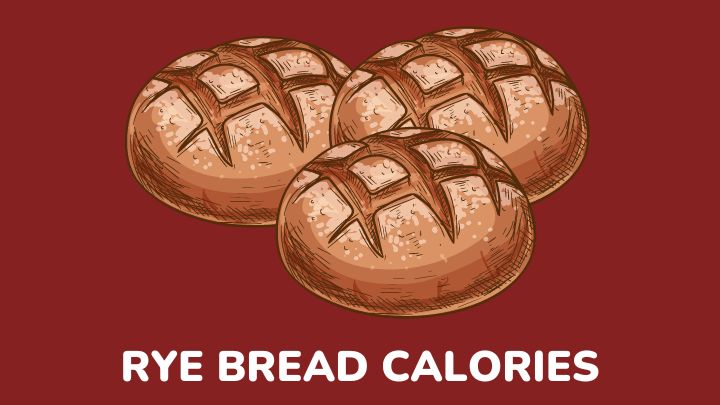How many calories are in a loaf of rye bread? Should it be a part of your diet? Find out here.
Rye bread has been a staple in diets for centuries, with its origins rooted in Northern and Eastern Europe. It holds significance as a versatile and nutritious food choice, enjoyed by many for its distinct flavor and dense texture.
Whether you’re a rye bread enthusiast or simply curious about its potential benefits, in this blog post, you will understand its caloric content and overall nutrition profile in comparison with other breads.
If you’d also like to learn about its impact on weight management and overall health, then you should keep reading.
What is rye bread?
Rye bread is a type of bread made from rye flour, which comes from the rye grain. It has a distinct flavor and dense texture.
Rye bread has been around for centuries, especially in Northern and Eastern Europe, where rye grows well in colder climates.
It was a staple food for many people in these regions due to its availability and nutritional value. The main ingredients in rye bread are rye flour, water, salt, and sometimes yeast. Rye flour gives the bread its characteristic flavor and dark color.
Some variations may include other grains or seeds for added texture and flavor.
Nutritional profile of rye bread
According to the US Department of Agriculture, a 100-gram serving of rye bread contains:
- Calories: 259
- Water: 37.3g
- Protein: 8.5g
- Fat: 3.3g
- Carbohydrate: 48.3g
- Fiber: 5.8g
- Sugar: 3.85g
- Vitamin C: 0.4mg
- Vitamin B6: 0.075mg
- Calcium: 73mg
- Iron: 2.83mg
- Magnesium: 40mg
- Phosphorus: 125mg
- Potassium:166mg
- Sodium: 603mg
- Cholesterol: 0mg
Calories in rye bread
The number of calories in rye bread can vary depending on factors such as the type of rye flour used, additional ingredients like seeds or nuts, and the size of the serving.
On average, a slice of rye bread contains around 60 to 80 calories, but this can vary significantly.
Factors influencing calorie count
Type of rye flour
Rye bread can be made with different types of rye flour, such as light rye flour or whole grain rye flour. Whole grain rye bread tends to have a higher calorie content due to its higher fiber and nutrient content.
Additional ingredients
Some varieties of rye bread may include additional ingredients like seeds, nuts, or sweeteners, which can impact the calorie count.
Serving size
The size of the slice or portion of rye bread consumed also affects the calorie intake. Larger slices will naturally contain more calories than smaller ones.
Comparing rye bread to other types of bread
1. Calorie comparison
Rye bread typically has fewer calories than white bread and similar calories to whole wheat bread. While a slice of white bread may contain around 70 to 80 calories, a slice of rye bread generally ranges from 60 to 80 calories, depending on the brand and ingredients used.
2. Nutritional differences and benefits
Fiber content
Rye bread is higher in fiber compared to white bread. Fiber is essential for digestive health and can help you feel fuller for longer, which may aid in weight management.
Glycemic index
Rye bread has a lower glycemic index compared to white bread, meaning it doesn’t cause a rapid spike in blood sugar levels. This makes it a better choice for individuals managing diabetes or those looking to control their blood sugar levels.
Nutrient density
Rye bread contains more nutrients, such as vitamins, minerals, and antioxidants, compared to white bread. These nutrients contribute to overall health and well-being.
By choosing rye bread over white bread and incorporating it into your diet, you can enjoy the benefits of its higher fiber content, lower glycemic index, and greater nutrient density.
Impact of rye bread on weight management
Rich in fiber, rye bread helps keep you feeling full for longer periods, reducing the temptation to overeat and supporting weight loss efforts. Moreover, its fiber content aids in regulating bowel movements, promoting digestive health.
Research indicates that high-fiber foods like rye bread can boost feelings of fullness and decrease overall calorie consumption throughout the day.
This effect is valuable for individuals aiming to manage their weight effectively without feeling hungry or deprived.
To leverage the weight management benefits of rye bread, swap out less nutritious bread options with whole grain or whole wheat rye bread.
Health benefits of rye bread
Potential heart health benefits
Rye bread contains soluble fiber, which can help lower cholesterol levels and reduce the risk of heart disease.
By incorporating rye bread into your diet, you may improve heart health and support overall cardiovascular well-being.
Impact on blood sugar levels and diabetes management
The fiber content in rye bread slows down the absorption of sugars into the bloodstream, helping to stabilize blood sugar levels.
This makes rye bread a suitable option for individuals with diabetes or those seeking to manage their blood sugar levels effectively.
Contribution to digestive health
Fiber-rich rye bread promotes healthy digestion by adding bulk to stool and preventing constipation.
Additionally, the fermentation process involved in making rye bread produces beneficial compounds that support gut health and may reduce the risk of gastrointestinal disorders.
Tips for choosing and enjoying rye bread
Read nutrition labels
Before purchasing rye bread, take a moment to review the nutrition label. Look for whole grain or whole wheat varieties with minimal added sugars and preservatives for the healthiest option.
Opting for whole-grain varieties
Choose whole-grain rye bread whenever possible. Whole grain varieties contain more fiber, vitamins, and minerals compared to refined grains, providing greater nutritional benefits.
Incorporating rye bread into meals and snacks
Get creative with how you enjoy rye bread. Use it as a base for sandwiches, toast it for breakfast, or serve it alongside soups and salads for a satisfying meal.
Pairing rye bread with healthy toppings and spreads
Enhance the flavor and nutritional value of your rye bread by topping it with nutritious ingredients. Try avocado, hummus, sliced vegetables, or lean protein sources like turkey or salmon for a wholesome and delicious snack or meal.
Storing rye bread properly
To keep your rye bread fresh for longer, store it in a cool, dry place or the refrigerator. If you won’t finish the loaf quickly, consider freezing individual slices for future use.
Rye recipes and ideas
Homemade rye bread
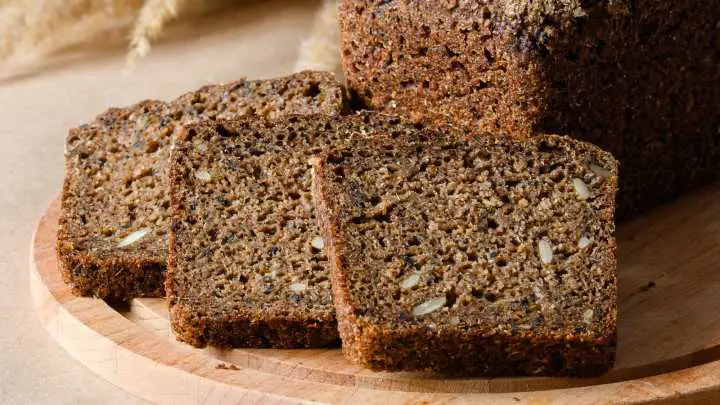
Make your rye bread at home with this easy recipe. Combine rye flour, water, salt, and yeast, then knead the dough until smooth.
Let it rise, shape it into a loaf, and bake until golden brown. Enjoy fresh, warm slices of homemade rye bread with your favorite toppings!
Rye bread sandwiches
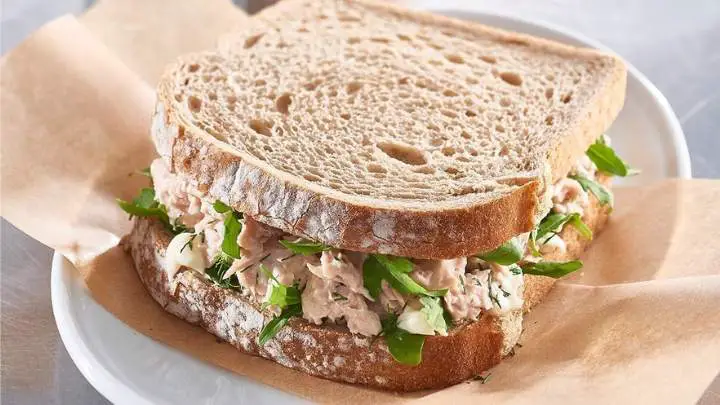
Create satisfying sandwiches using rye bread as the base. Fill your sandwiches with a variety of ingredients such as sliced turkey or chicken, cheese, lettuce, tomato, and avocado. Experiment with different flavor combinations to suit your taste preferences.
Rye bread toast
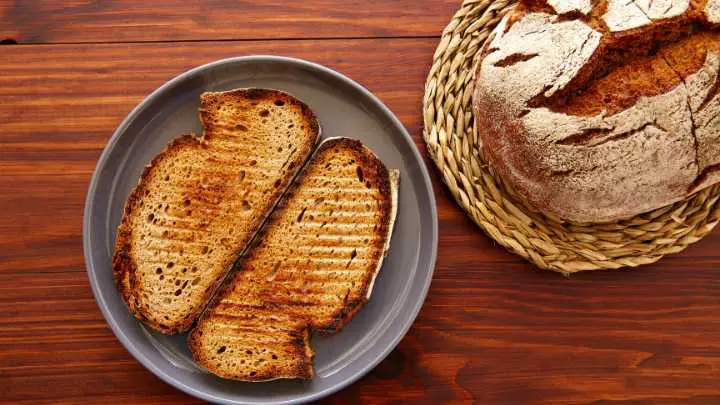
Toast slices of rye bread until golden and crispy, then top them with your choice of spreads and toppings.
Try mashed avocado with a sprinkle of salt and pepper, or almond butter with sliced bananas and a drizzle of honey for a sweet and savory treat.
Rye bread panini

Transform ordinary rye bread into a gourmet panini by layering it with your favorite fillings and grilling it until crispy and golden.
Fill your panini with ingredients like grilled vegetables, pesto, mozzarella cheese, and grilled chicken for a satisfying meal.
Rye bread croutons
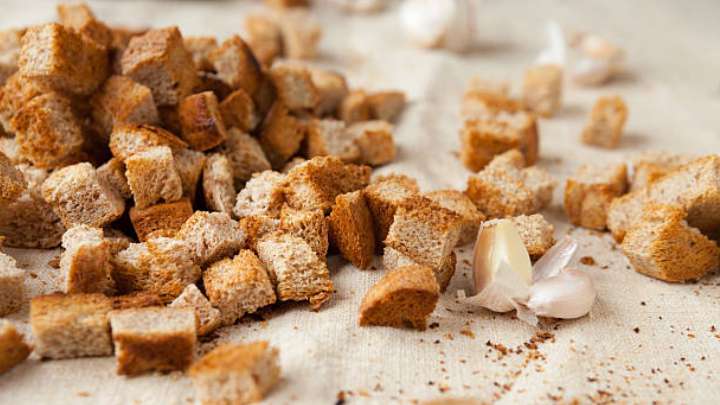
Turn leftover rye bread into crunchy croutons to add texture and flavor to salads and soups. Simply cube the bread, toss it with olive oil, garlic powder, and dried herbs, then bake until crispy. Sprinkle the croutons over your favorite salads or soups for an extra burst of flavor.
Rye bread French toast
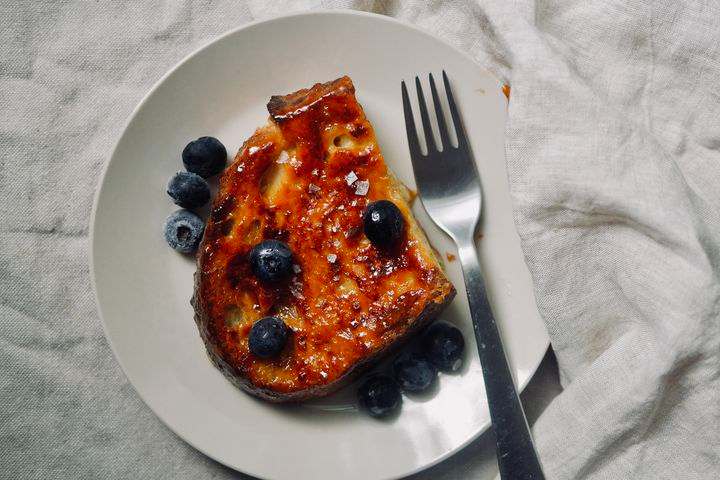
Upgrade your breakfast or brunch with rye bread French toast. Dip slices of rye bread into a mixture of eggs, milk, cinnamon, and vanilla extract, then cook them in a skillet until golden brown.
Serve with maple syrup, fresh berries, and a dusting of powdered sugar for a decadent morning treat.
Rye bread pizza

Transform rye bread into a quick and easy pizza crust. Top slices of rye bread with tomato sauce, cheese, and your favorite pizza toppings, then bake until the cheese is melted and bubbly. Enjoy homemade rye bread pizza for a satisfying meal or snack.
FAQs
Is rye bread gluten-free?
No, rye bread contains gluten as it is made from rye flour, which naturally contains gluten. Individuals with gluten sensitivities or celiac disease should opt for gluten-free alternatives.
Can you freeze rye bread?
Yes, you can freeze rye bread to extend its shelf life. Wrap the bread tightly in plastic wrap or aluminum foil, then place it in a freezer bag or container.
Thaw frozen rye bread in the refrigerator or at room temperature before consuming.
How long does rye bread last?
The shelf life of rye bread depends on factors such as storage conditions and preservatives used. Generally, store-bought rye bread can last up to one week when stored in a cool, dry place or the refrigerator.
Can rye bread help with digestive issues?
Yes, rye bread’s high fiber content can aid in digestion by promoting regular bowel movements and supporting gut health. Including rye bread in your diet may help alleviate constipation and improve overall digestive function.
Is rye bread suitable for vegetarians and vegans?
Yes, most rye bread recipes are suitable for vegetarians and vegans as they typically contain plant-based ingredients like rye flour, water, yeast, and salt. However, it’s essential to check the ingredients list for any animal-derived additives or preservatives.
Conclusion
Rye bread is not only a delicious addition to your diet but also offers numerous health benefits.
From its potential to support heart health and blood sugar management to its role in promoting digestive health and aiding weight management, rye bread stands out as a nutritious choice.
Whether you opt for store-bought varieties or try your hand at making homemade rye bread, remember to prioritize whole-grain options and pair them with nutritious toppings and spreads
With its versatility and nutritional value, rye bread is sure to become a staple in your kitchen and contribute to your overall well-being.
You can also learn about the calorie content in pita bread, health benefits, and alternatives.
Thanks for reading.
